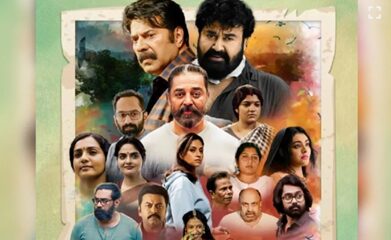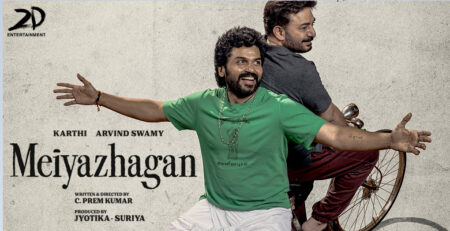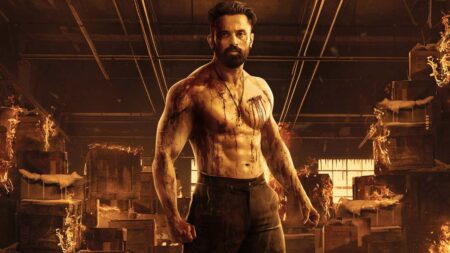The anthology Manorathangal, is a mixed bag that resonates deeply with long-time MT fans while newer audiences might find it less accessible, highlighting the need for fresh directorial perspectives in future adaptations.
Sherlock
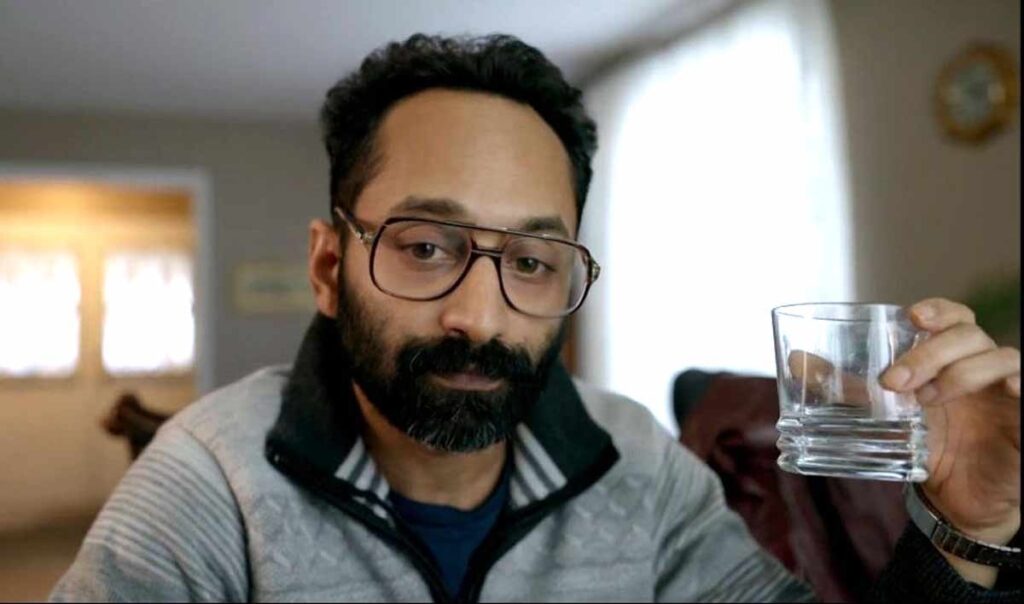
Man is an animal, after all.
Balu (Fahadh Faasil), a young man with some skeletons in his bare cupboard, moves to the US to start afresh with his elder sister (Nadia Moidu). The strange land with its terrible winter and mechanical living conditions does not fill Balu with much confidence. His only connect with his familiar environments is speaking in Malayalam with his sister and eating rice. To add to his discomfort, his sister and her husband have a cat named Sherlock that is getting on his nerves.
It took five episodes and actor-director duo with a proven track record to get the party started. Mahesh Narayan and his regular muse tread a path that is not too familiar to either of their fans. The name of the cat and the way Mahesh shoots the film makes one think it is a mystery. You are waiting for the big reveal without realizing the crime. Until a chance conversation about a feline cosmetic procedure turns the movie on its head. Then suddenly the repeated shots of the same activities start making sense. You realise that a crime was secretly committed, but you are the victim.
Kadalkkaattu (Sea Breeze)
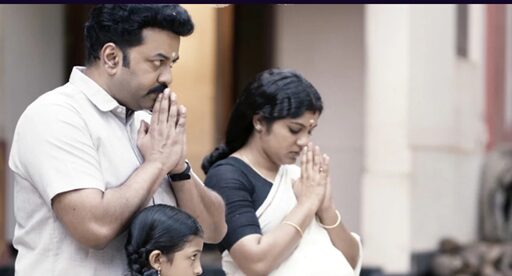
Why?
Bharathi (Aparna Balamurali), a pregnant housewife lives with her daughter and a legion of house help in a familial mansion by the sea. Her husband Keshav works and lives in the city. It is not too far, just an hour by car. But Keshav is plagued by health concerns due to the sea breeze and has to stay away. Unbeknownst to Bharathi, he is having an affair with the bubbly Margaret (Ann Augustine).
There is a lot of subtext, which one feels counts for a lot in the original short story. Keshav’s boss is an Englishman, a rarity in the 80s. The sickening sea breeze itself could be a metaphor for Keshav’s infidelity, the family dog that is now behaving with Keshav as a stranger could be his conscience. But none of this translates to the screen. We instead see a hard-working man who is pestered by a submissive wife and, hence, driven to the arms of another woman. Without violence, Kadalkkaattu manages to appear misogynistic. Something, I am very sure MT didn’t intend it to be.
Considering that a lot of thought went into selecting the stories that would be used for adaptation, and MT was involved at some level, I am pretty sure that Kadalkkaattu is a story of some renown. But In the hands of Ratish Ambat, it becomes a generic love triangle that is arguably the weakest segment in the anthology. The talent that was involved deserved better.
Abhayam Thedi Veendum (Once again, In Search of Refuge)

Respect the audience’s imagination, if not their intelligence.
A man (Siddique) comes to an interior village. His intentions are unknown. He searches for a house to rent and gets a dilapidated old house that had fallen into disrepair. The assistant of the owner (Naseer Sankranthy) instructs him to not become too familiar with the house as the owner could ask him to leave anytime. The man slowly makes it habitable. He starts having visions of a woman (Ishit Yamini) who he seems to know. But is it really a vision?
Santhosh Sivan, after wielding the camera for Olavum Theeravum, takes on the megaphone also in this thinly veiled allegory for human frailty and mortality. He seems to initially want to insert us in the middle of a mystery. He succeeds, too. We want to learn more about the man and what he is doing in the village. Then, the bubble bursts and we understand that it is a very different type of film. However, Sivan seems to want even the most casual of viewers to understand the metaphors and his imageries become a tad tedious.
Siddique gets to portray a role that doesn’t come his way that often and he is too good an actor to let that opportunity go. As in a lot of Malayalam films, rain plays an important character. For those who grew up on MT’s movies in the 80s and 90s, this may seem a strange entry, almost out of place in his bibliography.
Swargam Thurakkunna Samayam (When the Doors of Heaven Open)
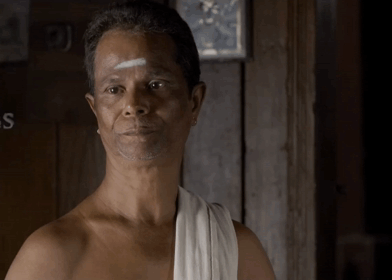
If only death followed the rules
MT has explored death and its effects on those around multiple times. In the 1994 film Sukrutham, Mammootty played a journalist who finds out his days are numbered. His friends and family rally around to give him solace in his last days and he prepares for the inevitable. Swargam reminded me of that film. There are a lot of similarities.
Madhavan (late Nedumudi Venu), the patriarch of a household, lies on his deathbed. Kuttinarayanan (Indrans) is one of those almost invisible men who help the dying in their last moments. He has been around dying people for a long time and can accurately predict when they will leave this realm. He has been called to Madhavan’s bedside and interacts with the adult children of the house who have come to see their father for the last time and to see what should be done with the property after he passes on.
As the unwell Madhavan communicates only in coughs and groans, Kuttinarayanan consoles the family by saying that their father would cross over only at the hour when the doors of heaven open, ensuring the best in afterlife and possible reincarnation. The clocks, the family waits.
Jayaraj has had an impressive run in Malayalam films straddling both commercial and art. Getting the atmosphere right is easy for him. The problem is the story is not just pure drama. There is an aspect of black humour in it. This is a genre that too many can take to easily. It is the last one in the anthology and there were times while watching it when I thought they saved the best for the last. But, on hindsight, I don’t quite think that. Anyway, it is time to revisit Sukrutham.
Every episode is introduced by Kamal Hassan. While the lines are quite evidently scripted, everyone knows what a polyglot Kamal is. So, it doesn’t exactly feel out of place. His intros are shot in what seems like a personal library that is every hardcore bibliophile’s fantasy. The title song sung by KS Chitra is both haunting and catchy. The credit sequences, while modern, hark back to innocent times.
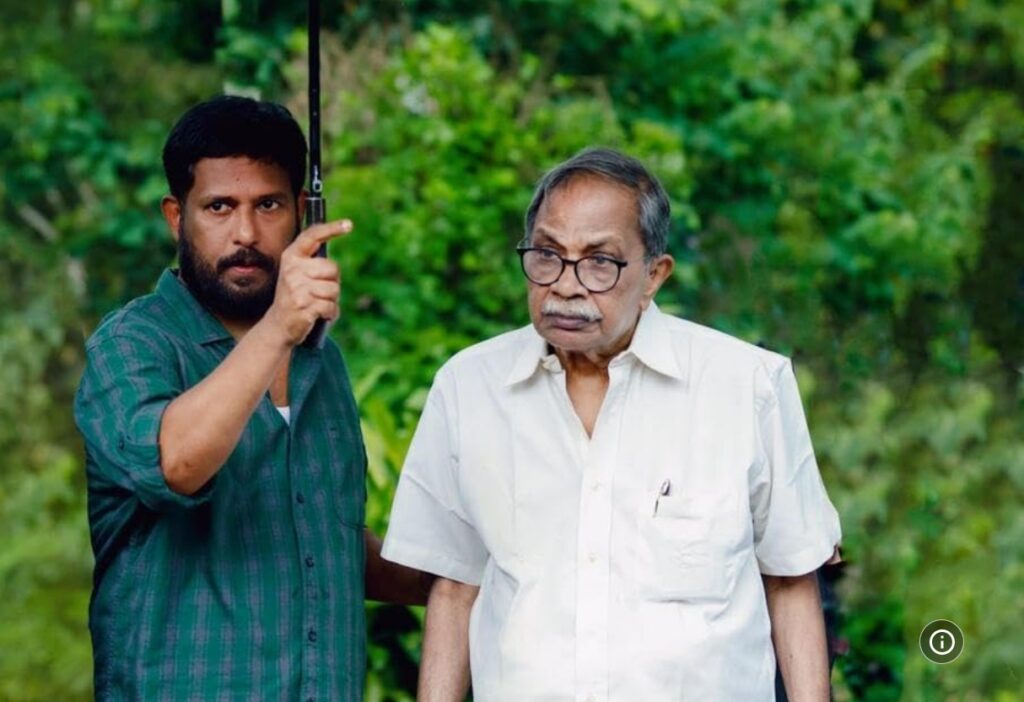
MT usually sets his work in a milieu that is very familiar to him and a time period that he has been a part of. But most of his stories are not restricted by them. There was an intentional decision taken to make the films in the time they were written. The result is Manorathangal is like a time machine. It takes you back to when society was more innocent. We also see the belief systems and attitudes of time past.
Those who know MT revere him. They have his works on page and on screen to remind them of those times that were familiar to them. They would be thankful to have lived in a time that overlapped with the prolific output from a singular voice.
Those who do not, especially from a more recent generation, will not become fans with Manorathangal. They might even dismiss it as nostalgia porn. Which will be unfortunate. I fervently hope there will be more seasons of Manorathangal. But MT and Ashwathy should look for young directors who can bring a fresh take on classic stories. They should select the stories that can just as easily be told in today’s time. That, in my humble opinion, can get a different generation hooked to the overflowing Nila that is MT’s oeuvre.

